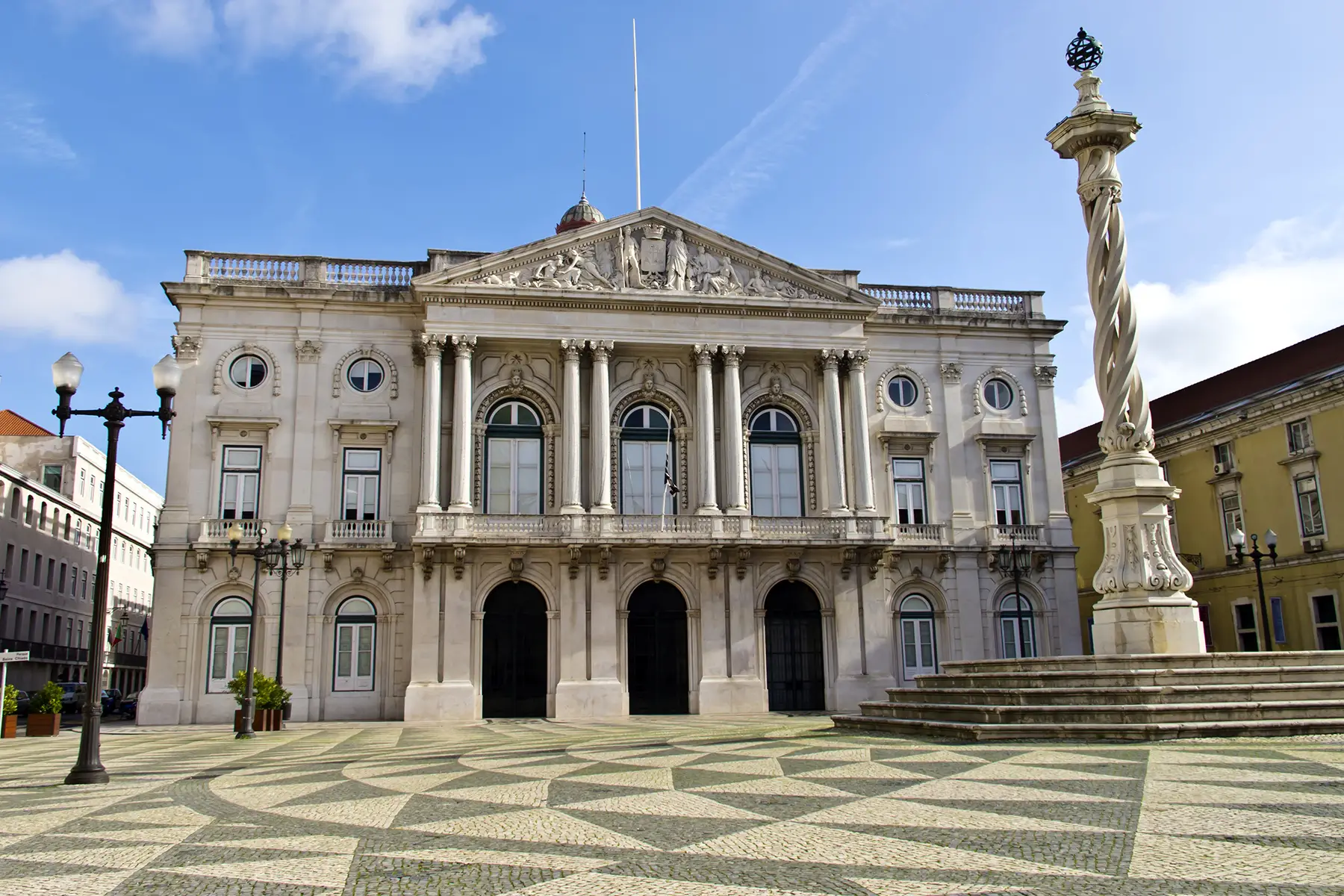Fortunately for expats, filing for a divorce in Portugal is relatively easy compared to some Western countries. Couples can apply for a mutual or contested divorce, and if both parties agree on the decision, there is no need to present a cause for it. However, if either spouse disagrees, they will have to show grounds for divorce and plead in court. The process can also be quite different for parents and expats, as child custody and visas take center stage.
To help you navigate this transition with ease, we’ve gathered all the details about getting a divorce in Portugal in this guide, including the following:
- An overview of divorce in Portugal
- The legal grounds for divorce in Portugal
- What to do if your visa depends on your marriage
- Getting a divorce in Portugal: step by step
- Cost of getting a divorce in Portugal
- Things to consider when getting a divorce in Portugal
- Alternatives to getting a divorce in Portugal
- Useful resources
lingoking
Has the sun set on your marriage in Portugal? Make sure your divorce proceedings go smoothly by using lingoking for all your translation needs. Whatever documents you need translating, lingoking's network of professional translators can help. Order online 24/7 and take some of the stress out of your split with lingoking.
An overview of divorce in Portugal
There were 20,421 divorces in Portugal in 2019, representing a 0.37% increase from 2018. The majority of these cases (68.7%) went through the Civil Registry Office (Conservatória do Registo Civil) and were consensual. The rest went through court and included incidents where one of the partners contested the decision, with a small portion being cases of separations converted into divorces.

That year aside, however, the divorce rate in Portugal is steadily declining, revealing a change in society over the last few decades. Whereas people used to shy away from divorce, it is now an acceptable option when a relationship is no longer working. Church divorces were once a contested subject, but today there are a similar number of divorces following civil and Catholic weddings.
Within Europe, the divorce ratio in Portugal in 2019 was on par with Belgium and Switzerland, but slightly above neighboring Spain and below most Scandinavian countries.
A brief history of divorce in Portugal
Portugal has a complicated history with divorce. The right to divorce came with the proclamation of the First Republic in 1910. Thirty years later, an agreement with the Vatican Church prohibited divorce for all Catholic weddings. It was only in 1975, following the Carnation Revolution, that this right got restored.

In an attempt to adjust to the ever-changing family dynamics following divorce, the Portuguese government issued a new divorce law in 2018. It put an end to the concept of fault divorce and gave room to family mediation.
Divorce in Portugal for same-sex couples
Divorce for same-sex couples has been allowed in Portugal since 2010 when gay marriage was legalized. A year later, the first divorce cases cropped up, with six couples choosing to part ways. The number of divorces has been rising ever since. In 2019, for instance, there were 97 divorces between same-sex couples, representing a 29.3% increase from 2018 when there were 75.
The legal grounds for divorce in Portugal
In Portugal, the legal grounds for divorce are subject to Decree-Law No. 47344. A couple can file for divorce at any time following their marriage. Furthermore, you don’t need the consent of your partner to apply for divorce. That said, the process will be much smoother and quicker if you are both in agreement.
Essentially, there are three types of divorce in Portugal:
- By mutual consent through a Civil Registry Office: both parties agree on ending the marriage and issues regarding child care, spousal maintenance, and assets division.
- By mutual consent in court: both people agree to end the marriage, but not the divorce conditions attached to it.
- Without the consent of one spouse: only one party agrees with ending the marriage. It usually involves a court hearing and can be a lengthy process.
Of the 20,421 divorces in Portugal in 2019, more than half (14,039) were divorce by mutual consent through the Civil Registry Office, while the others were settled in court.
Unless you are going to court, you don’t have to explain the causes of your divorce. For contested divorces, a spouse needs to justify their decision based on one of the following grounds:
- separation for more than a year
- change in mental faculties
- partner absence
- other facts that prove the marriage rupture
What to do if your visa depends on your marriage
If you acquired a residence visa through marriage (visto de reagrupamento familiar), and want to remain in Portugal after the divorce, you still have a few options. If you have been in the country for at least five years, then you may be able to apply for a long-term resident visa (estatuto de residente de longa duração). To qualify for this, you need to show evidence of stable income and have health insurance and accommodation. You might also need to show proof of your Portuguese language skills.
For expats that have been in Portugal for less than five years, a work visa (visto de trabalho) might be the best bet. There are different categories, including a self-employed visa (visto para uma actividade independente) or a highly qualified worker (visto para actividade altamente qualificada). In this case, you must provide proof of your qualifications and have a company sponsor your application.
If you want to start your own business in Portugal, then you might be eligible for the StartUP Visa (visto Startup). To obtain this, entrepreneurs must establish a company that produces innovative goods and services, have the potential to create qualified employment, and show proof of means of subsistence of at least €5,200.
Getting a divorce in Portugal: step by step
While the process of getting a divorce in Portugal is quite simple, couples still need to submit a few documents and follow some steps. Any spouse can file for divorce or an attorney representing the parties.
The process of getting a divorce in Portugal
The process of getting a divorce in Portugal is different for every couple. If both parties agree on an amicable divorce and there are no children involved, it can take around one month to process. The spouses must file a joint petition at a Civil Registry Office, and the timing will depend on the registrar’s availability. Consensual divorces don’t require legal representation.

For couples with underage children, however, the process can take longer, as the government needs to review and approve the parameters for child custody. Even if you both agree on your parental responsibilities, it will usually take between four to six weeks or more to process.
A contested divorce can take at least six months to finalize, with negotiations going back and forth. One spouse must file an application through court, hire an attorney, and wait for the first hearing.
Documents required to file for divorce in Portugal
To apply for divorce in Portugal, both partners or the attorneys representing them must present a few documents, including the following:
- a certified copy of the marriage certificate (certidão do registo de casamento); this must be translated into Portuguese if the marriage was held outside Portugal
- a written request stating that they want to get a divorce
- an agreement with an itemised list regarding jointly-held goods and property signed by both parties (relação especificada dos bens comuns)
- a written agreement or a certificate of the court’s verdict (certidão da sentença judicial) regarding child custody, if there are any underage children
- an agreement regarding spousal maintenance (acordo sobre a prestação de alimentos), if the couple agrees on such payment
- a written agreement defining what will be done with the house where the couple lives (acordo sobre o destino da casa de morada de família), if they share one
- a statement regarding what will happen to the family pets, if you have any
- a certificate of the prenuptial agreement (certidão da convenção antenupcial), if it didn’t go through the Civil Registry Office and the marital regime is not stated in your marriage registration
Note: Before applying, make sure to ask if you need to translate any of these documents into Portuguese. If this is the case, remember to allow enough time to do so. This is where a translation service can really help. Thankfully, there are a number of online platforms you can use to find the right translator for you, including:
How to apply for a divorce in Portugal
Below is a step-by-step outline for getting a divorce in Portugal:
- A couple submits a request for divorce at the Civil Registry Office (mutual divorce) or court (contested divorce), along with the supporting documents mentioned above; including the marriage certificate and an agreement of shared goods. Couples with children should present a child custody agreement. If you have pets together, you also need to arrange a solution for them.
- For couples with children, the Public Prosecution Service reviews the application and responds within 30 days. If they decide the agreement isn’t enough to protect your children, you may have to amend it. If you don’t agree with these changes, the process might go to court.
- For mutual divorces, the registrar summons the couple for a meeting to review all the paperwork. You can still change things here, especially if the registrar doesn’t think the agreement is fair to one party or the children involved. In contested divorces, the judge books a meeting to discuss reconciliation or settle an agreement for mutual divorce. If that doesn’t work, they will schedule a court hearing.
- If your application is approved, there will be a meeting at the Civil Registry Office where the divorce will be made official. For contested divorces, the court will assess the legal grounds for divorce and issue their verdict based on the case.
Cost of getting a divorce in Portugal
Getting a divorce in Portugal isn’t necessarily expensive. For instance, couples who opt for a mutual consent divorce can expect to pay €280 for the process at a Civil Registry Office. If there are any assets or property divisions, however, then the price goes up to €625.

The fees can be much higher when you have to plead to court. In this case, each person can spend on average €600 or more depending on how long the process drags out. For a contested divorce, it is mandatory to have an attorney, which will make things more expensive. If one of the partners can’t afford to pay for an attorney, they can apply for legal assistance.
In general, both spouses must share the divorce cost. However, a divorce can be free if the couple proves they have financial difficulties. To do this, they must present a document that proves their economic status. This can be issued by Social Security (comprovativo de que beneficiam de apoio judiciário), or the social aid institution where they might be staying. If only one spouse can benefit from this, the other has to support 50% of the costs.
Things to consider when getting a divorce in Portugal
Like in any country, a divorce in Portugal isn’t just about two people splitting up. During the process, you have to consider several things such as child custody, property division, spousal maintenance, and even your pets can’t be left behind.
Custody of children and child support
Even after divorce, Portuguese law states that couples with children should continue to share their parental responsibilities. Whenever possible joint custody (guarda partilhada) is preferred, but in some cases, the court might opt for sole custody (guarda única) if that is in the child’s best interest.

The custody arrangement should include details about child support and where the child will live. Couples can opt between exclusive residence (residência exclusiva), where the child lives solely with one parent, or alternate residence (residência alternada), where they live between homes. In this last case, parents have to agree on a time frame for each party; for example, 30% or 50% of the time.
Parents can agree on an amount for child support together. Otherwise, the registrar or the judge will make a ruling considering several factors. These include how long you have been married, your income, and how long you will spend with the children. In Portugal, children can receive child support until the age of 25.
Pet custody
Couples need to mention if they have any pets on their divorce application. If that is the case, they must state what will happen to them going forward. This demand was added in 2017 when the Portuguese government approved a series of laws regarding animal protection.
Property division
When applying for divorce in Portugal, couples should consider their financial assets. These include anything from cars and real estate to stocks and bank accounts.

Usually, when you get married in Portugal, you have a regime that states that anything acquired during the marriage is shared. Unless you signed a prenuptial agreement (convenção antenupcial) under different conditions, this is how it usually goes. Note that this shared arrangement also covers debts. This means that even if only one of the spouses has a debt incurred during the marriage, this amount will be split evenly.
If both parties agree on the division, the process is much smoother. You will have to submit a list of assets and their value with a statement on how you wish to divide these. In the case of a dispute, couples might need to hire an attorney and wait for a court hearing.
Spousal maintenance
Spousal maintenance isn’t mandatory in Portugal, and according to Decree-Law No. 47344, each party should be able to sustain themselves after the divorce. When filing for divorce, a spouse can state if they intend to assign or receive this support. To apply for it, the person requesting it must have a financial need for it, and the other spouse should have the possibility to cover it. The payment obligation ends when the spouse who receives the maintenance remarries.
Alternatives to getting a divorce in Portugal
While most people choose to end their marriage through a divorce, there are other options worth considering. Below are some of the most common alternatives to getting a divorce in Portugal.
Getting an annulment in Portugal
A marriage can be considered void in Portugal if it was illegal or if one of the parties was misled. It can include lying about their fertility or willingness to have children, lack of mental abilities, or if one of the parties was too young or was forced to marry.
Couples that got married in a church can also apply for an annulment (nulidade do casamento). This process can take up to a year, depending on the cause, and the cost can be around €900.
While each party should retain their property and assets, child custody arrangements still need to be reviewed by the state. In Portugal, this option is more widely used by couples who had a Catholic wedding. Similar to other couples, they can get a divorce and remarry again. However, if they wish to get married in a church the second time, the only way to do it is through an annulment.
Divorce mediation
Before initiating the divorce process, couples can apply for mediation (mediação familiar). This is a popular choice in contested divorces where partners don’t agree on the terms of separation.

Any party involved may request the family mediation or the court, depending on the case. Once this goes through, there is an informative meeting with the mediator where you will discuss the best approach for seeking a resolution or reaching an agreement. The mediation usually lasts around three months, but you can decide to end it sooner.
Each spouse pays a single €50 fee, regardless of the number of appointments you attend and the total duration of the process. That said, you can be exempt if you can’t afford it. If the court requested mediation to settle issues related to child support, for example, then you don’t need to cover this cost.
Legal separation
As an alternative to divorce, couples in Portugal can apply for a legal separation (separação de pessoas e bens). This doesn’t dissolve the marriage but removes the responsibilities of cohabitation. Both parties remain obliged to follow the marital duties of cooperation, faithfulness, and respect.
The separation can be upgraded to divorce when the couple has been apart for a year (contested cases) or at any time if it is mutually agreed. The application process, the grounds for property division, and the cost are similar to a divorce.
Some couples might also opt to separate before divorcing when they aren’t ready to make such a permanent decision. However, while there is the possibility of reconciliation, most couples end up officializing the divorce.
Useful resources
- ePortugal – provides information about filing for divorce or requesting a separation
- Agency for Integration, Migrations, and Asylum (Agência para a Integração, Migrações e Asilo – AIMA) – Portuguese immigration agency, for visa-related questions
- Divórcio & Família – offers advice on how to get a divorce in Portugal from a law firm







